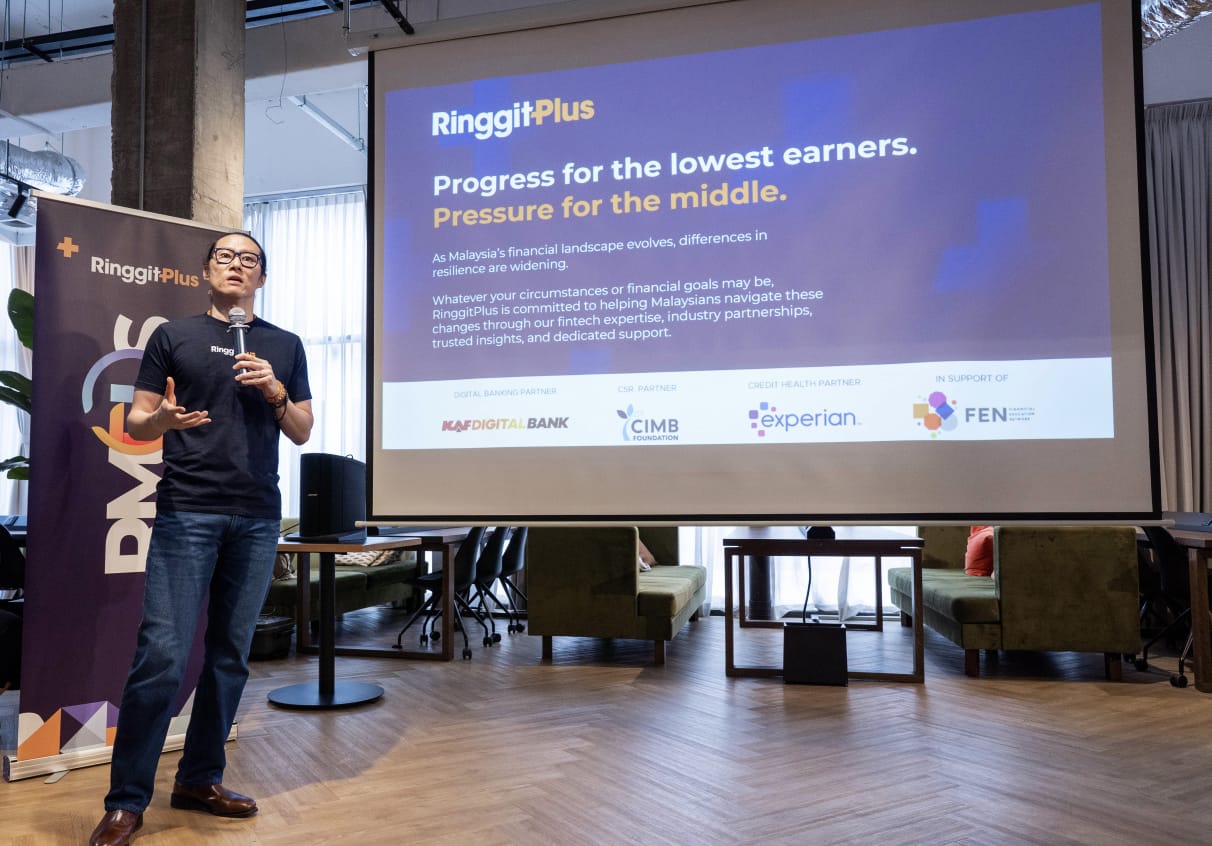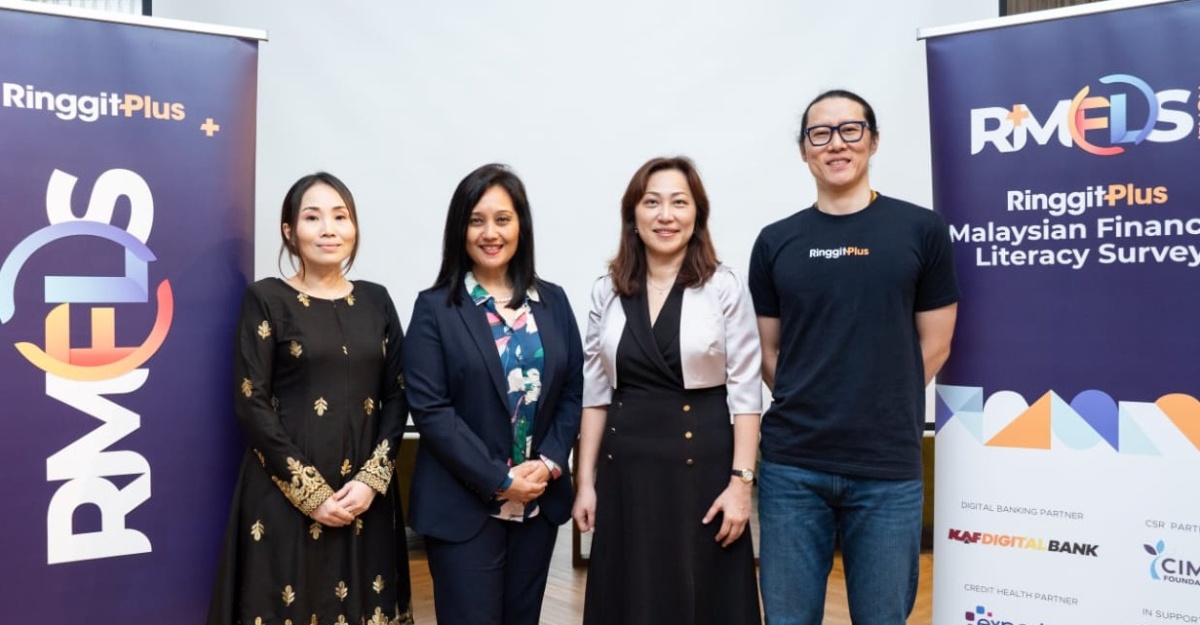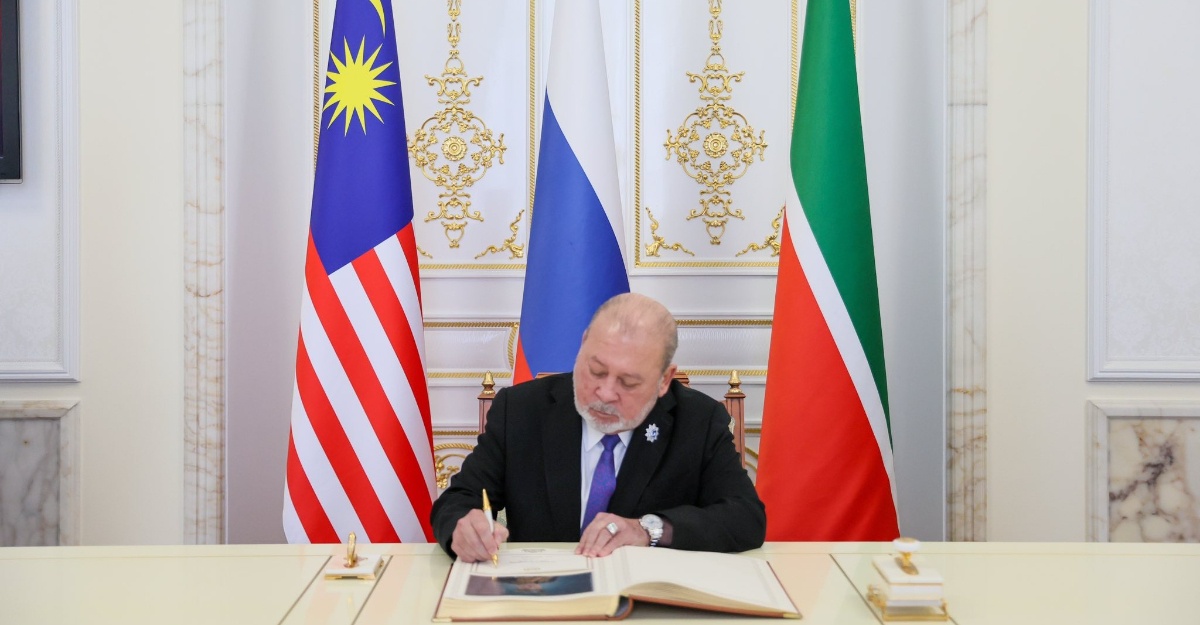RMFLS 2025: B40 people record financial progress, M40 still needs more support
Ringgitplus today announced the results of the Malaysia Financial Literacy Review (RMFLS) 2025, the eighth edition of the annual study that evaluated how Malaysians manage, store and think about their personal finances.
This year’s survey shows various findings: Low -income Malaysia and Gen Z show financial progress, while middle people face developing challenges, although there is a widespread increase in retirement planning, credit awareness, and digital financial management.
Malaysia which is low in income shows progress in financial planning and awareness
The 2025 survey showed positive developments among low -income Malaysians, with more respondents taking steps towards long -term financial security. Specifically, 55% of those who earn less than RM2,000 a month said they had begun to plan retirement, up from 48% in 2024. This reflects the sustainable impact of financial education initiatives, government support programs, and the increase in minimum wages in helping the community most affected by increasing living costs.
Financial literacy was also increased: only 40% of low respondents said they did not recognize credit scores (decreased from 45% last year), marking an increase in awareness about how credit scores affect financial welfare.
There are also signs of financial care. As many as 36% of low respondents -both said they actively avoid the highest use of purchases now, payment services (BNPL) then in all income segments. This might show changes in more careful debt management, especially in uncertain economic conditions.

The income group is facing financial pressure and a decrease in savings
On the other hand, Malaysians, especially those that produce between RM5,000 to RM10,000 a month, show the ability to continue to decline. They are the only income groups that report a decrease in savings, with only 23% managed to save between RM1,001 and RM1,500 a month, compared to 29% in 2024.
Meanwhile, the number of people who saved less than RM500 a month increased to 39% from the previous 31% of the year. Financial resilience also weakened, with only 27% said they could last for more than six months without income, compared to 32% last year. These groups are also only an income group that reduces entertainment expenses, eating outside, and subscribing to manage their personal budgets.
In terms of financial sentiment, trust is also fading. Although almost half of Malaysians (48%) believed that their financial situation was better than last year, this feeling was not distributed: only 54% of middle -income groups that felt better, decreased from 58% in 2024. These findings show that although they still benefit from public support such as fuel subsidies, medium income groups are increasingly exposed to financial and financial savings.
Generation Z Practice Savings and Financial Digital Tools
At the same time, young people in Malaysia emerged as a bright point in the 2025 report. About 40% of the Z gene now saves more than RM500 a month, up from 36% last year, while the percentage that did not directly drop directly to only 11% of the lowest of all generations.
Their interest in financial planning was also highlighted by 57% said they had begun planning for retirement, compared to 53% in 2024. This generation also actively uses technology, with 62% reporting they use budget applications that are powered by budget, robo advisors, or financial chat to help manage their finances.
Insurance costs up, Malaysia reduces protection
Increased insurance costs have a big impact on Malaysians as a whole. As many as 22% of policyholders have turned into cheaper plans or cancel at least one policy over the past year because of these financial capabilities most visible among low income.
Although there are individual efforts to plan the future, 43% of Malaysians still do not have health insurance, while 15% only rely on the company’s medical card. Meanwhile, less than half (48%) said they have life insurance or takuh policy, showing that financial protection is still the second priority compared to other living costs.
More Malaysia plans to retire & financial studies through social media
The level of financial awareness of Malaysians increased, with 64% said they had begun to plan retirement, up from 60% in 2024. The belief in EPF savings was also positive, with 22% believed that their savings were enough, compared to 19% last year. Small changes but encourage all income groups.
This awareness is in line with an increase in the level of financial literacy. Only 47% of Malaysians said they did not understand credit scores or their meanings, reduced from 53% in 2024.
In an effort to educate, social media remains the main source of financial information. As many as 68% of respondents now use platforms such as Instagram, Tiktok and Facebook to learn about finances.
Safer investment is an option, except for the younger generation
Although half of Malaysians have not started to invest, those who do it make attractive choices according to generation.
Traditional choices remain popular; ASNB (64%) Funds, Trust Units (42%) and precious metals (38%) are the first choice. However, younger Malaysians show a different pattern: Crypto currencies and Robo advisors registered in the five main options of Gen Z, while local shares are more popular among millennium and Gen X.
This trend reflects a careful approach as a whole, but with a tendency to try something newly driven by the younger generation.
It’s time to focus on the middle income group
“RMFL 2025 reflects the resilience of Malaysians. Many people who are low -income and Gen Z take steps in the right direction, remain consistent, plan retirement, and build good financial habits despite challenges,” said Yuen Tuck Siew, Chief Executive Officer Ringgitplus.
“However, our findings also show that middle -income groups need to be given attention and support. These people continue to work hard even though there is tightness from the household and the power of savings decreases. When Malaysia moves towards the status of developed countries, ensuring that the middle insomen group has the right tools and the opportunity to rebuild their financial power will be the key to sustainable economic growth.
Ringgitplus Malaysia Financial Literature Review (RMFLS) is supported by the Financial Education Network (FEN) and collaborative partners including digital bank kaf, CIMB Foundation, and Experian. This survey is conducted every year through an online survey involving more than 3,000 respondents in Malaysia, and continues to provide timely observations about the financial health, behavior, and priority of Malaysians.
For more information about the Ringgitlus 2025 financial literature review, please visit the Ringgitlus website or Ringgitplus social media channel (Instagram and Facebook).
The Post RMFLS 2025: People B40 Record Financial Development, M40 still needs more support that first appears in Siakap Keli.
News
Berita
News Flash
Blog
Technology
Sports
Sport
Football
Tips
Finance
Berita Terkini
Berita Terbaru
Berita Kekinian
News
Berita Terkini
Olahraga
Pasang Internet Myrepublic
Jasa Import China
Jasa Import Door to Door


